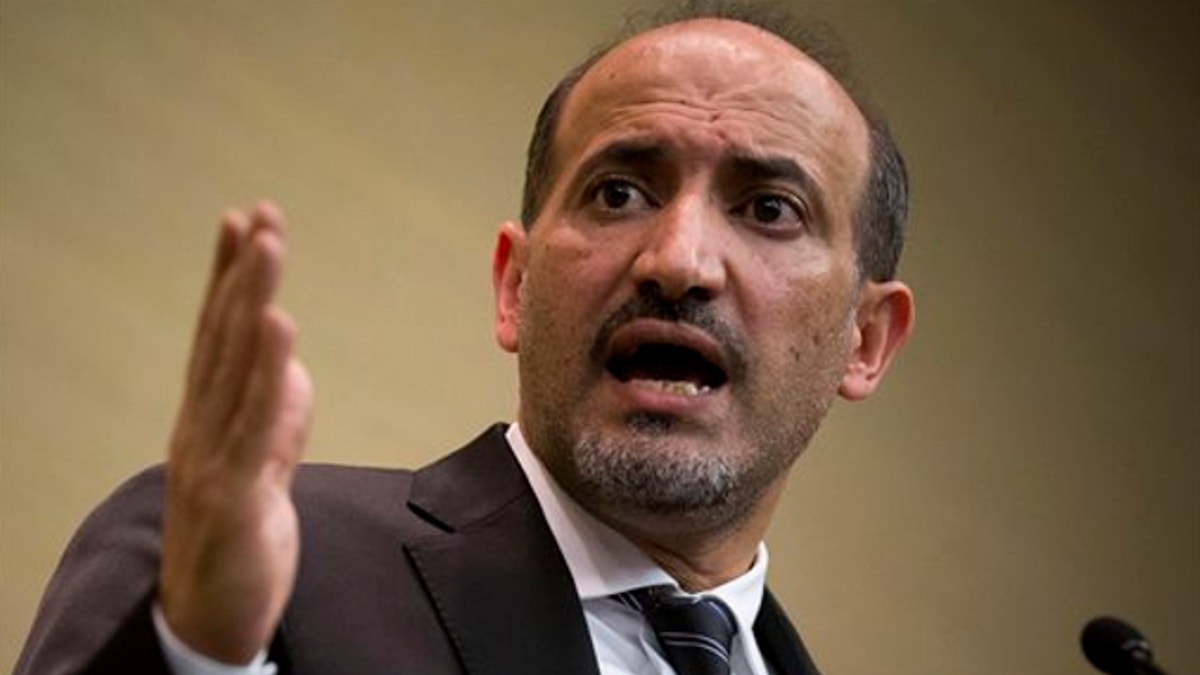
Jan. 23, 2014: Ahmad al-Jarba, leader of the Syrian National Coalition (SNC), Syria's main political opposition group, raises his hand during a press conference in Geneva, Switzerland. (AP)
GENEVA – Direct talks were scrapped Friday between Syrian President Bashar Assad's government and the Western-backed opposition that wants to overthrow him, a major setback for the peace conference that aims to halt a civil war that has killed at least 130,000 people.
Despite low expectations, the peace conference in Switzerland was seen as the best hope to stem bloodshed that has destabilized the entire region and turned Syria into a magnet for al-Qaida-inspired militants. Both sides still agreed to meet separately Friday with U.N. mediator Lakhdar Brahimi.
Minutes before seeing Brahimi, the Syrian government delegation blamed the opposition Syrian National Coalition, saying it lacked credibility or any influence within Syria.
The coalition was to meet separately with Brahimi later Friday, said U.N. spokeswoman Alessandra Vellucci.
Bouthaina Shaaban, an adviser to Assad who traveled to Geneva for the talks, questioned whether the coalition -- made up largely of exiles based in Turkey -- was prepared to negotiate an end to the violence.
"We came here with Syria and the Syrian people on our mind, only while they came here with positions and posts on their mind," she said.
Late Thursday, the coalition's head, Ahmad al-Jarba, said he was committed to the talks and would give his negotiators full authority on their time, pace and scope.
On Friday, al-Jarba's chief of staff said the negotiations were never expected to be easy or quick, insisting that the coalition was simply not yet prepared to meet directly with the government.
"Everyone knows that these are proximity negotiations," he said. "And for the time being that's the way it is going to be."
Both sides have spent their time so far in Switzerland affirming positions hardened after nearly three years of fighting. They blamed each other for turning a once-thriving country into ruin, calling each other terrorists.
But their willingness to meet with Brahimi -- even separately -- gave the first sense that the negotiations might bear fruit. Brahimi himself has said both sides had shown willingness to bend on humanitarian corridors, prisoner exchanges and local cease-fires -- even if the terms were still murky.
The Syrian National Coalition, which is made up largely of exiles, lacks influence with an increasingly radicalized rebellion, which has been pulled apart by an influx of militants. Infighting among rebels has left 1,400 people dead in the past 20 days, according to activists, who have counted more than 130,000 deaths since the rebellion began in 2011.
